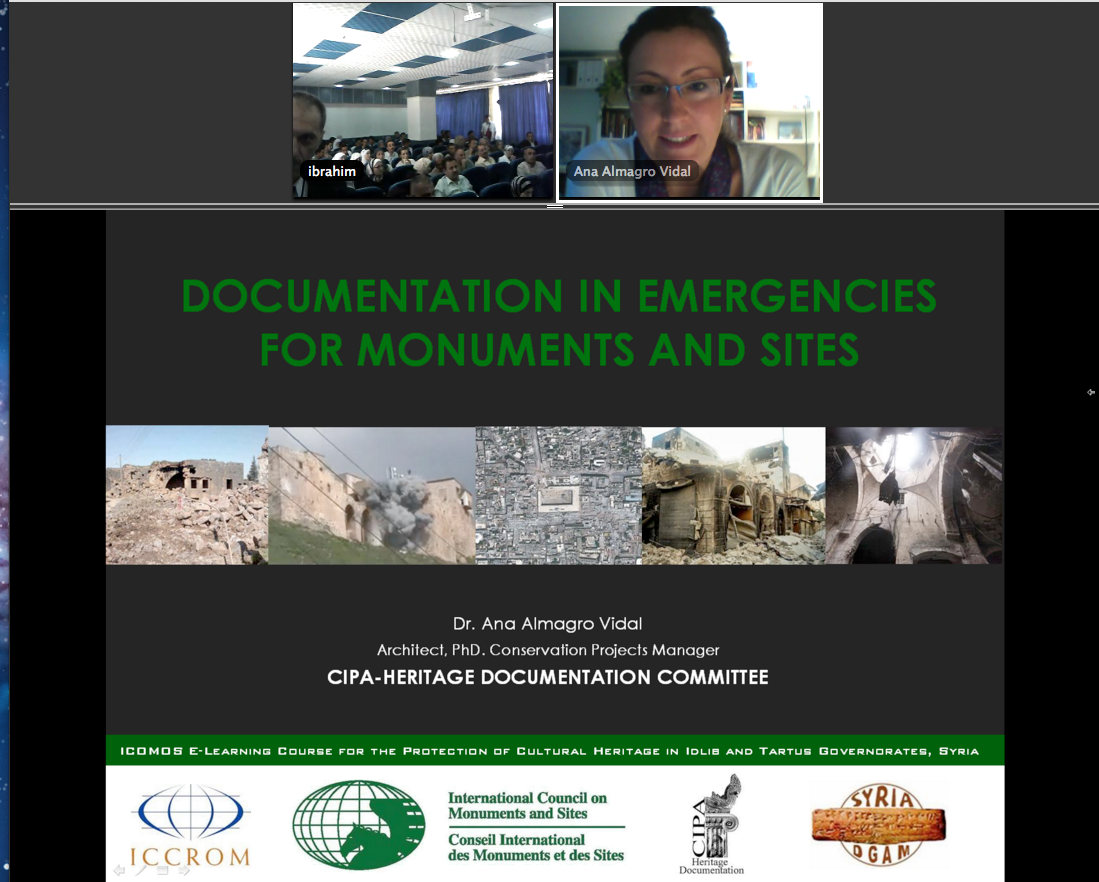Protection of Cultural Heritage in Idlib Governorate, Syria: ICOMOS-ICCROM e-learning course for Syrian cultural heritage professionals in times of armed conflict
Press release – 27 August 2013
ICOMOS, in cooperation with ICCROM and the Directorate-General of Antiquities and Museums of Syria (DGAM) held a new e-learning course for the Syrian cultural heritage professionals of Idlib on 21 August 2013. The course was led by the ICOMOS International Scientific Committee on Risk Preparedness- ICORP and follows on from an earlier course held in Damascus in January 2013.
The training course for Idlib Governorate responds to the immediate and urgent needs expressed by local heritage professionals and volunteers, who are actively in charge of protecting heritage sites and collections. The technical and scientific training provided during the e-learning course addressed the question of how to protect cultural heritage during a conflict situation, and how to provide first aid and emergency responses to damaged sites and collections.
Idlib Governorate is home to some of the most significant ancient sites of the country, including the Ancient Villages of Northern Syria, inscribed on the UNESCO List of World Heritage in Danger.
Over 100 participants, including DGAM staff and experts on cultural heritage, curators from Idlib Museum, representatives of cultural heritage NGOs and the Archaeological College,and also first aiders from the Red Crescent, followed the lectures given by ICOMOS and ICCROM trainers through video-conferencing. The course team included recognized professionals from Syria, UK, India, Spain, Iran and staff members of ICCROM. While ICCROM and ICOMOS contributed staff time for the implementation of this activity, the other lecturers voluntarily offered to share their knowledge and expertise.
This workshop was planned as a follow-up activity to an earlier e-learning course held in January 2013 at The National Museum of Damascus. ICOMOS and ICCROM are working on providing practical guidelines in Arabic and English for salvaging and securing damaged cultural heritage.

Press contacts:
Mr Bijan Rouhani, ICOMOS-ICORP course coordinator - bijan.rohani@gmail.com (English)
Mr Samir Abdulac, ICOMOS expert member - abdulac@wanadoo.fr (English/French/Arabic)
Additional resources:
Documents
- Idlib e-learning course document- 21 August 2013
- Protection of Syria’s Cultural Heritage in Times of Armed Conflict: ICOMOS - ICCROM e-learning course for Syrian cultural heritage professionals- January 2013
- ICOMOS – ICCROM e-learning Course booklet and programme
- Protecting Cultural Heritage in Times of Conflict (ICCROM publication, 2012)
ICOMOS Statements on Syria
- ICOMOS Statement on Crac des Chevaliers and the continuing destruction of the cultural heritage of Syria- 19 July 2013
- ICOMOS Statement on Aleppo- 27 July 2012
